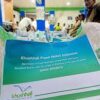
SAMA announces the issuance of the Open Banking Framework as one of the key outputs of the Open Banking Program, which includes a comprehensive set of legislation, regulatory guidelines and technical standards based on international best practices to enable banks and fintechs to provide open banking services in the Kingdom. The first version of the open banking services focused on the Account Information Service (AIS), and the second version will focus on the Payment Initiation Service (PIS). SAMA is also tracking the development of banks and fintechs to ensure their readiness to launch open banking services within the first quarter of next year 2023.
Open banking is a new concept in the financial industry. It is the practice of enabling customers of financial institutions to share their financial data securely with a third party provider, which in turn provide new and innovative financial services and products for customers. Moreover, open banking creates a positive impact in the industry by strengthening the partnership between banks and fintechs. It also improves the financial infrastructure and guarantees better use of financial data for customers.
The Open Banking Program is one of the initiatives of the Fintech Strategy, one of the pillars of the Financial Sector Development Program (FSDP) under Saudi Vision 2030. The Fintech Strategy was approved by the Council of Ministers by end of May this year, and it aims to make the Kingdom a global fintech hub where technology-based innovation in financial services is the foundation to enhance the economic empowerment of individuals and society.
It is also worth mentioning that SAMA permitted a number of fintechs to provide open banking services under the umbrella of SAMA Regulatory Sandbox. This step came in parallel with the Open Banking Program, with a view for testing some new business models and identifying the regulatory and technical challenges, which were considered when developing the Open Banking Framework.










